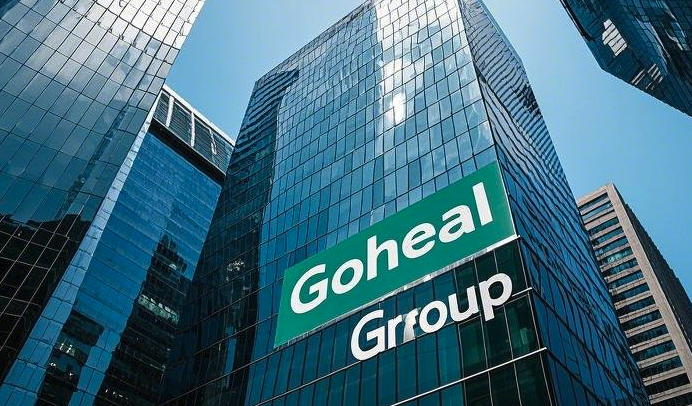"Profits blind people's minds, and blindness leads to the failure of the country." In the vast theater of the current capital market, every merger and acquisition is an absolute "high IQ game". But it is regrettable that performance commitments, which seem to be a reassurance to investors, often become the "poison apple" that crushes listed companies. Promises should be promises, but the reality has repeatedly evolved into broken promises, or even "rollover scenes". The scripts of failure seem to vary greatly, but in the final analysis, they are just three plots that are staged in turn - financial fraud, betting cliffs, and policy mutations.

American Goheal M&A Group
This is not alarmist. In 2025, as the popularity of mergers and acquisitions continues to rise, this kind of "plot cycle" in the capital arena will be staged more frequently and with higher intensity. As Goheal, which has been deeply involved in the global market for many years, we have witnessed the emergence and collapse of the halo of countless star restructuring cases, and continue to build a complete set of "thunderbolt avoidance manuals" for entrepreneurs and investors. This time, we will take you to dismantle the three major performance commitment failure scenarios that drag listed companies into the abyss.
Act 1: "Excellent students" under the filter, the fraud method is shocking
This is a kind of "fake to cultivate the truth" magic.
It usually happens at the starting point of M&A negotiations. At that time, the target company was like a fairy tale princess in white gauze, with bright profits, rapid growth, and healthy accounts, everything is exciting. However, once the merger is completed, once the honeymoon period is over, this layer of filter will be broken into pieces-it turns out that the net profit is forged, the orders are "made up", and the accounts receivable are just "painting a pie", and the real business is nothing but a bubble.
The case of D Company's acquisition of a supply chain company is like a living textbook: the target company continued to inflate profits from 2014 to 2018 through fictitious transactions, until the regulator took action, the truth came to light. The consequences are self-evident-the merger failed, the performance exploded, and there was no way to compensate, and D Company's stock price was halved.
Even more outrageous is Kangdexin. Back then, it claimed to have cutting-edge material technology and a rich patent portfolio, but in fact, it embedded a whole set of illusions into its performance commitments. By forging orders and fabricating patented technologies, the valuation was raised higher than Mount Everest, but less than two years after the merger was completed, the former "material unicorn" broke its wings and fell.
In Goheal's view, if you want to see through these disguised "top students", the key is to dig deep into their "profit generation mechanism". In other words, don't just focus on the financial report numbers, but "get to the bottom" from the business model, order sources, customer concentration and even ERP system cross-validation. Don't be afraid of trouble, what you should be afraid of is the real trap behind the fake data.
Act 2: The "three-year quick success" of the bet period is nothing more than borrowing the future to repay the present
Another "self-deception mode" in the capital market is the short-term high-pressure completion of bet-style commitments. Three years seems to have become the standard configuration of the bet agreement. Therefore, in these three years, the target company often overstocks, promotes, releases income in advance, and even empties inventory and borrows new to repay old, as if it is willing to "live" to hand in homework. Once the betting period is over, the tired engine finally stalls, and a cliff-like decline comes as expected.
The merger of Yingfeng Environment and Zhonglian Environmental Sanitation is a textbook example: the three-year bet was completed accurately, but the profit in 2021 evaporated by half in an instant - the consequences of "eating the grain of the next year in the next year" in the early stage finally came, just like the academic master who suddenly collapsed after the college entrance examination.
The transaction between Zhongjin Environment and Jintailai is no less: once the commitment period ends, the performance plummets, triggering legal disputes, and the two parties even go to court, which is tantamount to "divorce and tear their faces". Betting should be a win-win situation, but it ends up being a lose-lose situation.
Goheal reminds here: M&A is not a short-distance race, but a relay race. When designing a betting agreement, the "one-shot deal" model should be avoided, but a "combination punch" of introducing a rolling incentive mechanism, releasing the consideration in installments, and establishing performance conditions and retention clauses should be used. Don't let the "performance halo" become a "capital shackle", that's really not a good deal.
Act 3: Policies change faster than turning pages, and market changes are more fickle than the weather
The last "mine mode" is more a trick of fate than a human error. But no matter what, the result is equally fatal.
The policy has changed, the industry is no longer optimistic; the market has shrunk, and the original profit model has collapsed. At this time, even if the target company itself has not committed fraud and tried to fulfill its promises, it still cannot escape the fate of failure. You thought you acquired an oil field, but when the policy changed, it was a "sealed well".
LeTV's series of mergers and acquisitions are like a "mine-stepping encyclopedia". At that time, it spent billions to acquire film and television copyrights, sports IP and smart devices, intending to build a "content empire". Who would have thought that with tightened supervision, broken capital chains, and policy cleansing, looking back now, no project has fulfilled its promises, but has dragged the parent company into the abyss.
The merger and acquisition case of Oriental Garden is also worth pondering. Originally focusing on the environmental protection industry, the target company looked as solid as a rock before the acquisition. But after a piece of environmental protection production restriction policy, orders were lost, projects were suspended, and performance plummeted. This is not poor management, but "there are unpredictable winds and clouds in the sky".
Goheal always emphasizes: "M&A commitments must be designed with flexibility." Facing an uncertain future, we encourage the use of "conditional commitments", "floating performance bets" and "market adjustment clauses" to build a safety buffer for enterprises. As for investors, they must learn to identify whether the logic of "pro-cyclical foolishness" is embedded behind mergers and acquisitions, so as to avoid becoming the last person to take over at the policy turning point.

Goheal Group
Epilogue: The fire of capital burns vigorously and fiercely
When you walk into the core area of capital operation, you will understand a simple but profound truth: the most dangerous thing is not the obvious landmines, but the illusion of the script wrapped in the golden shell.
Financial fraud makes you see a false future; the cliff of betting makes you forget sustainability; the dramatic change of policy makes you understand that the word "ruthless" in the market is not just a joke. And the real capital master is not how to get on the bus faster, but how to get off the bus more steadily. After all, profits can be pursued and promises can be set, but once these classic landmines are stepped on by mistake, "value destruction" is the real price.
In this era of turbulence and transformation, Goheal is willing to become the "M&A advisory headquarters" for entrepreneurs, not only telling you what to buy and how to negotiate, but also telling you when to stop, retreat, and avoid, so that capital operations can move from blindly following the trend to rationality.
So, the question is: In the next M&A cycle, will you play the role of "leader" or "follower" led by the script?
[About Goheal] Goheal is a leading investment holding company focusing on global M&A holdings, deeply cultivating the three core business areas of listed company control acquisition, listed company M&A and restructuring, and listed company capital operation. With its deep professional strength and rich experience, it provides enterprises with full life cycle services from M&A to restructuring and then to capital operation, aiming to maximize corporate value and achieve long-term benefit growth.